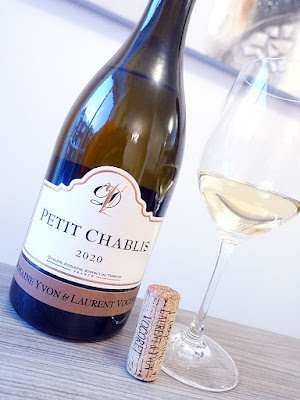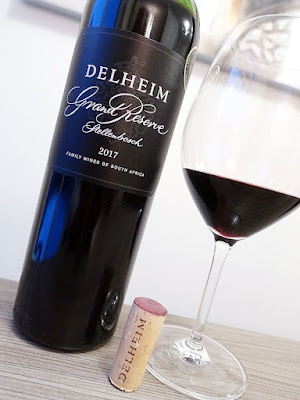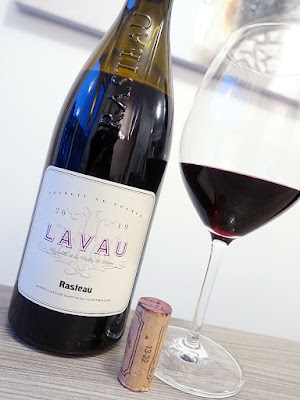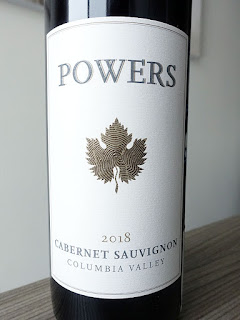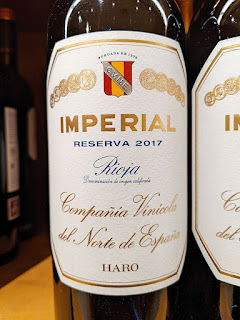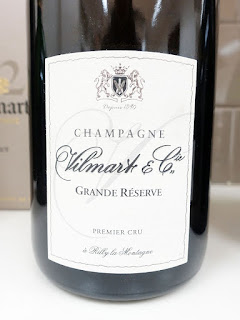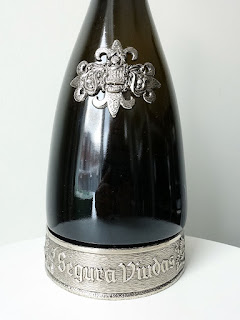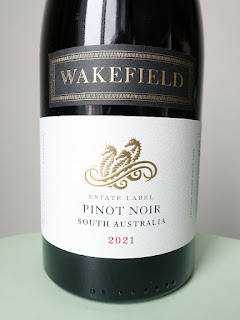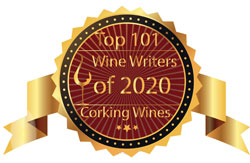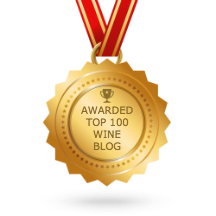white wine review is a lovely Chardonnay from Burgundy that newly landed at the LCBO as part of last weekend's LCBO VINTAGES Release on .
It is produced by Domaine Yvon & Laurent Vocoret, a small family-owned estate whose history inscribed in vine cultivation and winemaking dating back to 1713. It all began in the early 18th century with Jean Vocoret, whose winemaking soul no doubt guided him to pass down his wisdom, his fruits, his passion, and the nobility of winemaking to his descendants,
The Domaine's more recent history of winemaking in Chablis begins with Victor Hyppolite Vocoret, the great, great grandfather of Yvon Vocoret. Born in 1863, Victor had a few acres of vineyards and some leaflets in the cellar. Henri Vocoret, born in 1895, and alongside his wife Louise were the grandparents of Yvon and they managed to make the land prosper with the help of their horses, and were very proud to produce excellent wine.
The fourth generation of the family to own the estate were Yvon's parents, Maurice (1928-1997) and Huguette (1933), who carefully reflected upon the art of winemaking and invested in high performance equipment for the cellar. Maurice and Huguette knew how to anticipate and plan so that the quality of their wines would be recognized.
Today, the Domaine is led by Yvon, the 5th generation of the family, and his son, Yvon, the 6th generation, together with Huguette, as they uphold the family motto - quality, dignity, and respect - and continue to write the story of a humble, but determined family of winegrowers who craft wines that bring pleasure. Since 1974, the Vocoret family has been farming the vineyards organically to respect and protect their vines and soils, as well as the environment. They have also been using organic soil materials which forces the soil to do its own work in order to transform the organic materials to minerals, so that the vine can feed itself and grow fruit in a natural, sustainable way and guarantee a quality vintage, year after year. The wines of Domaine Yvon & Laurent Vocoret represent the essence of their exceptional terroir.
This Petit Chablis is crafted with 100% Chardonnay that was sourced from various plots covering 4 hectares of land throughout the appellation of Petit Chablis. The vines average 30 years of age and were planted on Portlandian Barrois clay-limestone and limestone marl soils which also feature red pebbles and a reddish-brown colour. Each plot of grapes were harvested at maturity and either manually or mechanically. It underwent a light static settling to retain the fine lees so that the alcoholic and malolactic fermentations can take place naturally. And finally, each plot was aged for approximately 9 months in stainless steel vats to preserve its fresh characteristics and allow plot to express itself prior to creating the final blend.
The 2020 growing season was warm and dry, yielding grapes with exceptional freshness and purity. The white wines of Burgundy classically styled, balanced, and consistently of a very high quality. As the 2020 vintage is such a fine vintage across the board, let's see how this 2020 Petit Chablis is tasting tonight...
This lovely Chardonnay has an elegant, medium-high intensity nose offering a lovely mix of ripe lemon, citrus, mineral oil, nutty, lactic, green apple, and white peach aromas. It is impressively weighted and quite structured on the medium-full bodied palate with lactic, mineral, lemon citrus, and green apple flavours supported by juicy, well-balanced acidity. Lemon citrus, apple, and white peach taper to leesy mineral notes on the long, crisp finish. Enjoyable now, but will be even better in a year or two. Highly recommended buy! Score: 91 pts
There is a Chablis 1er Cru available at the LCBO, while other lovely wines from their portfolio can be ordered through their Agent - DBINO David Beauroy Selections.
It is produced by Domaine Yvon & Laurent Vocoret, a small family-owned estate whose history inscribed in vine cultivation and winemaking dating back to 1713. It all began in the early 18th century with Jean Vocoret, whose winemaking soul no doubt guided him to pass down his wisdom, his fruits, his passion, and the nobility of winemaking to his descendants,
The Domaine's more recent history of winemaking in Chablis begins with Victor Hyppolite Vocoret, the great, great grandfather of Yvon Vocoret. Born in 1863, Victor had a few acres of vineyards and some leaflets in the cellar. Henri Vocoret, born in 1895, and alongside his wife Louise were the grandparents of Yvon and they managed to make the land prosper with the help of their horses, and were very proud to produce excellent wine.
The fourth generation of the family to own the estate were Yvon's parents, Maurice (1928-1997) and Huguette (1933), who carefully reflected upon the art of winemaking and invested in high performance equipment for the cellar. Maurice and Huguette knew how to anticipate and plan so that the quality of their wines would be recognized.
Today, the Domaine is led by Yvon, the 5th generation of the family, and his son, Yvon, the 6th generation, together with Huguette, as they uphold the family motto - quality, dignity, and respect - and continue to write the story of a humble, but determined family of winegrowers who craft wines that bring pleasure. Since 1974, the Vocoret family has been farming the vineyards organically to respect and protect their vines and soils, as well as the environment. They have also been using organic soil materials which forces the soil to do its own work in order to transform the organic materials to minerals, so that the vine can feed itself and grow fruit in a natural, sustainable way and guarantee a quality vintage, year after year. The wines of Domaine Yvon & Laurent Vocoret represent the essence of their exceptional terroir.
This Petit Chablis is crafted with 100% Chardonnay that was sourced from various plots covering 4 hectares of land throughout the appellation of Petit Chablis. The vines average 30 years of age and were planted on Portlandian Barrois clay-limestone and limestone marl soils which also feature red pebbles and a reddish-brown colour. Each plot of grapes were harvested at maturity and either manually or mechanically. It underwent a light static settling to retain the fine lees so that the alcoholic and malolactic fermentations can take place naturally. And finally, each plot was aged for approximately 9 months in stainless steel vats to preserve its fresh characteristics and allow plot to express itself prior to creating the final blend.
The 2020 growing season was warm and dry, yielding grapes with exceptional freshness and purity. The white wines of Burgundy classically styled, balanced, and consistently of a very high quality. As the 2020 vintage is such a fine vintage across the board, let's see how this 2020 Petit Chablis is tasting tonight...
Tasting Note:
DOMAINE YVON & LAURENT VOCORET PETIT CHABLIS 2020 - AC, Burgundy, France (#26446) (XD) - $27.95This lovely Chardonnay has an elegant, medium-high intensity nose offering a lovely mix of ripe lemon, citrus, mineral oil, nutty, lactic, green apple, and white peach aromas. It is impressively weighted and quite structured on the medium-full bodied palate with lactic, mineral, lemon citrus, and green apple flavours supported by juicy, well-balanced acidity. Lemon citrus, apple, and white peach taper to leesy mineral notes on the long, crisp finish. Enjoyable now, but will be even better in a year or two. Highly recommended buy! Score: 91 pts
There is a Chablis 1er Cru available at the LCBO, while other lovely wines from their portfolio can be ordered through their Agent - DBINO David Beauroy Selections.
